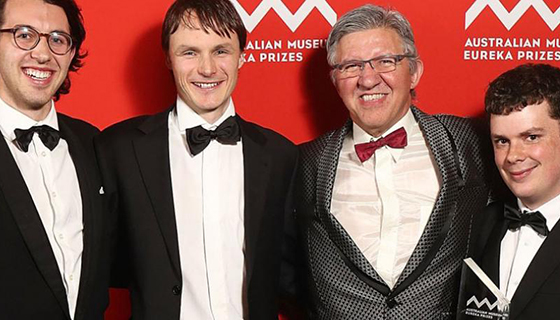Team behind life-saving oxygen technology wins Eureka Prize
A University of Melbourne team developing a live-saving oxygen supply system for the world’s poorest areas has won the 2017 ANSTO Eureka Prize for Innovative Use of Technology.

Pneumonia is the biggest killer of children in the world, and a lack of concentrated oxygen is a major contributor to many of these deaths. The FREO2 Siphon concentrator produces, stores and delivers medical-grade oxygen to critically ill newborn babies without needing a secure source of electricity.
This innovative technology has the potential to substantially reduce infant mortality rates arising from pneumonia and other hypoxic illnesses in low-resource settings, such as Papua New Guinea, East Timor and sub-Saharan Africa.
The siphon uses the energy from running water to separate oxygen from the surrounding air. Not only does it not require electricity, which is unreliable or unavailable in many places, but the machine is less complicated and requires less maintenance than an electric oxygen concentrator.
The multi-disciplinary team of physicists and medical experts is led by Dr Bryn Sobott, with Associate Professor Jim Black, Associate Professor Roger Rassool, Dr David Peake and Mr Kevin Rassool.
Professor Karen Day, Dean of Science at the University of Melbourne congratulated the team on “their very well deserved win”.
“I am truly thrilled to see FREO2 recognised nationally for their ground-breaking work.”
The Australian Museum Eureka Prizes are awarded annually for excellence in the fields of research & innovation, leadership, science engagement and school science.
Learn more about the research on Pursuit
Banner Image: Dr Bryn Sobott, David Peake, Roger Rassool and Kevin Rassool of FREO2 are presented with the 2017 ANSTO Eureka Prize for Innovative Use of Technology. Photo courtesy: Brendon Thorne/Getty Images